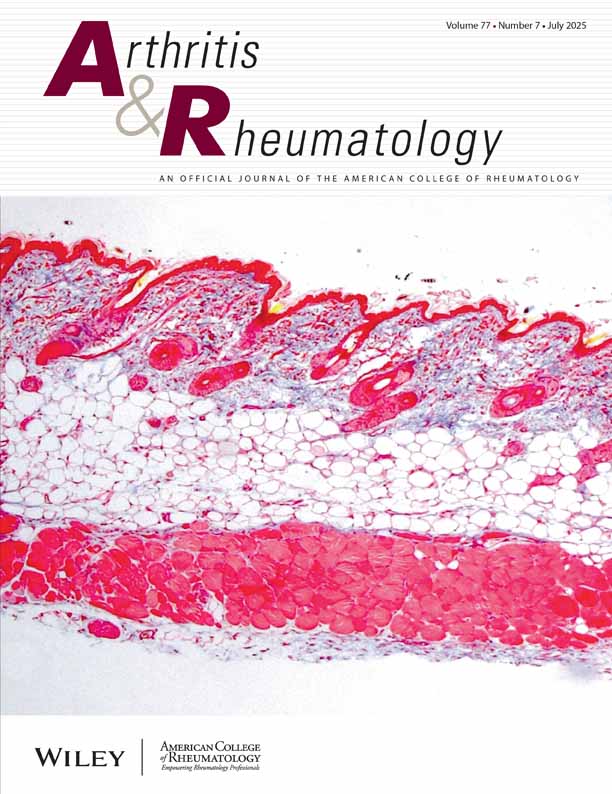HLA–DQA1 is not an apparent risk factor for microchimerism in patients with various autoimmune diseases and in healthy individuals
Abstract
Objective
Microchimeric cells have been identified in lesions and peripheral blood of patients with systemic sclerosis (SSc) and idiopathic inflammatory myopathies (IIM), and HLA–DQA1*0501 is a risk factor for these diseases in some populations. Furthermore, DQA1*0501 has been associated with T lymphocyte microchimerism in SSc. To better define the strength of this association, we assessed the relationship among DQA1 alleles and microchimerism.
Methods
DNA from whole peripheral blood or magnetically sorted T cells was tested for microchimeric cells by polymerase chain reaction of the Y chromosome or of HLA–Cw in 87 SSc patients, 28 juvenile IIM patients, and 88 healthy controls. Thirty-seven mother–son pairs were also analyzed for microchimerism and DQA1*0501.
Results
We were unable to demonstrate that DQA1*0501 is associated with microchimerism in T lymphocytes or in whole peripheral blood DNA in patients with SSc or juvenile IIM or in healthy individuals. In the 37 mother–son pairs, we were unable to demonstrate an association of DQA1*0501 with microchimerism in peripheral blood DNA or T lymphocytes, and compatibility between the donor's and recipient's HLA alleles did not influence microchimerism in the recipient.
Conclusion
These data suggest that HLA–DQA1 alleles do not appear to play a role in the persistence of microchimerism in the peripheral blood or T lymphocytes of patients with selected autoimmune diseases or in healthy individuals.




